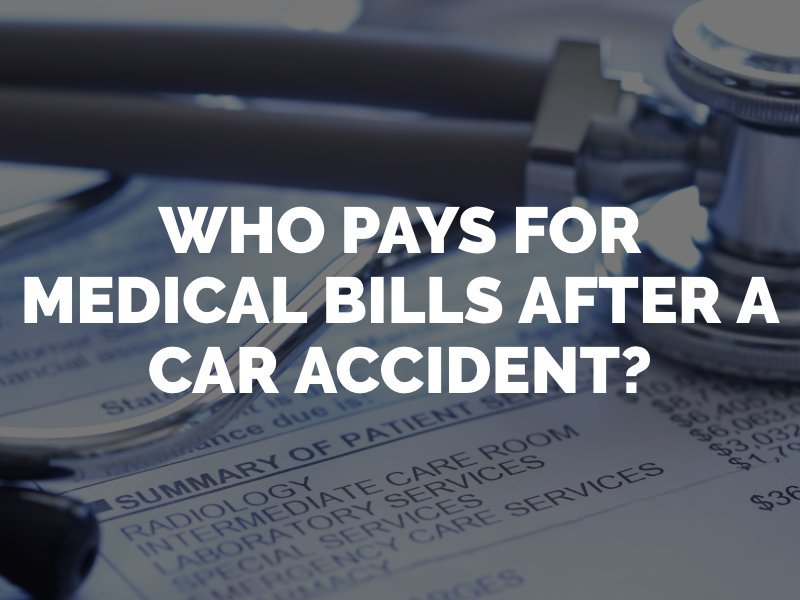Who Pays for Medical Bills After a Car Accident?
Medical bills are one of the greatest expenses after a typical auto accident. You and your family might owe thousands of dollars in ambulance fees, emergency room bills, surgeries, treatments, medications and rehabilitation. Whether you caused the car accident or not, someone else could be responsible for paying your medical bills. Speak to a car accident lawyer in Los Angeles before paying out of pocket for car accident medical costs.

Your Health Insurer
Crash victims should seek medical care immediately after an accident. They cannot physically afford to wait until after an insurance claim or lawsuit goes through. Luckily, the insurance system has worked out a way to allow accident victims to receive prompt medical care and worry about the bills later. The first line of defense will be your health insurance provider.
The initial bill for your crash-related medical expenses may go to your health insurance company whether or not you caused the accident. Health insurance can help you and your family pay for immediate medical care after a car wreck. If you have to pay any copays or deductibles, keep a paper record of these payments for use during an injury claim later. You might qualify for the full reimbursement of these expenses from the at-fault party.
If your health insurer has to front the costs of your medical bills, it may seek reimbursement from your auto insurance provider or directly from the at-fault party. The health insurer may place a lien on an insurance settlement or personal injury judgment award if you decide to go up against the at-fault party. You must fulfill the medical lien using any compensation you win before you pay off any other expenses.
The Other Driver’s Insurance Company
California uses fault-based insurance laws, meaning the party at fault for your car accident will be financially liable for damages. If the other driver caused your accident, you should not have to pay for your medical bills. It will be the other driver’s responsibility to pay through his or her insurance. The minimum required insurance in California is $15,000 in medical coverage per person and $30,000 per accident. Your health insurance company might seek reimbursement from the at-fault driver’s insurance carrier directly, or else you will have to pay off medical debts through a settlement award won.
Your Auto Insurance Company
If the at-fault driver was unlawfully driving while uninsured or underinsured, you might have to seek recovery through your own insurance provider. This would be an option if you have uninsured motorist insurance on your policy. This type of insurance pays for your losses if the at-fault driver does not have enough insurance. A first-party car insurance settlement agreement could relieve some or all of what you owe in medical costs after a crash with an uninsured driver.
You may also seek medical bill repayment from your auto insurance provider if you caused the accident and have the correct type of insurance. To receive coverage for your medical bills after a crash in which you are to blame, you would need comprehensive or medical payment insurance. With the correct type of auto insurance, your provider could front the costs of your medical bills or repay what your health insurer spent on coverage, up to the maximum on your policy. If your medical bills exceed the maximum, you might have to pay the rest out of pocket.
A Third Party
Some car accident cases in California involve the negligence or fault of a third party, such as the other driver’s employer, a vehicle part manufacturer or the government agency in charge of roadway maintenance. An investigation of the crash could identify a negligent third party that may have to pay your medical expenses and other bills. You might be able to file an insurance claim against a third party or name the party as the defendant in a personal injury lawsuit. Both outlets could result in financial coverage for your medical expenses. Consult with a car accident lawyer near you for more information about how to pay for your medical bills.
